Forgive me my dear friend, if the following lines are boring, they are meant to preserve the content of two very different events which have the same underlying theme - love. I wrote them not so much with you in mind, but to make sure I won't forget the details by the time I arrive home.
Event #2 at the mon ami Kino.
A depressing avant garde film in a retro movie theatre. That's what I stumbled into late Sunday afternoon. Down the stairs, around the corner, past storage and bar and projection cubicle into a seventy to eighty seat room with a curtained screen, a piano, and several half windows to the street above. The money taker/proprietor/projectionist pulled the shades over the windows, closed the doors, and for fifteen people who spread across the theatre the film unfolded. I speculate that, in the end, fifteen different opinions left the movie theatre.
"Das Herz ist ein dunkler Wald" (The heart is a dark forest) is the story of a marriage- of Thomas and Marie, and their two small children. The parents were once in love, but Thomas is always away and Marie is always home. She cries. He resents her crying. One day she finds out that he leads a double life; he has another woman and a son.
The things that make me cringe are probably familiar and not so bizarre to Germans, but my Americanized mind has a hard time with castles as ordinary places (though most of the time the action took place in the family's sixties style bungalow, the castle somehow caught my attention with its bizarre, erotic ball. And total nudity as a routine state in films is a bit unsettling for me. Partial nudity in the scene of Papa in the tub, his penis bobbing to the surface of the water and his little girl standing by the door, seem pornographic. At any rate, Marie leaves her sleeping children and goes to a masquerade ball in the castle where her violin playing husband performs; she makes out with some guy who wants his one of a kind jacket back when they are done, which leaves her naked in the woods. She ends up rolling into a lake, sees her father commit suicide, takes his gun, rides a bus home, totally nude. The last scene is ...... well, I don't want to give away the ending, but it is not pleasant.
Surreal. Dark. Forced? The film won a prize. I was not convinced.
Besides a star cast (I won't name them since I don't know them anyway) , there is an overwhelming assortment of music from opera to techno to pop, but there are no really memorable moments. Unfair role distribution between man and woman and neglect of children are obvious themes, but not to the point that they force me into deep thought. But then, it could be that I had exhausted my deep thoughts earlier in the day at a piano concert.
Event #1 at the Goethe Museum/Wohnhaus am Frauenplan
Yes, Herr Goethe, it happened in your home. From the ceiling hung sparkling chandeliers and along the walls precious porcelain was displayed in glass cases. There must have been around fifty of us; we sat in total silence and without moving as much as an inch. A captivated audience.
The artist, Cora Irsen, played pieces by Robert Schumann, by Clara Schumann, and by Johannes Brahms. She also read from letters and diaries, leaving me in sadness and with deep sympathy for Clara.
Robert Schumann had the wish that his wife give up all outside activities, including her own career, to take care of him and devote herself to the family. She bore him eight children in fourteen years, but the Schumanns also traveled extensively; Clara seems to have been a strong woman who never gave up her own ambitions.
Robert Schumann had his difficulties, hearing voices, especially the note A5, seeing angelic and later demonic visions. He was given to depression. He tried to commit suicide by jumping from a bridge and afterwards voluntarily entered an insane asylum.
Not until the much younger Johannes Brahms came into their lives did Clara have somebody who listened to her. Johannes became a friend to both of them. and though Clara did not see her husband again until two days before he died, Brahms visited him regularly.
After his death Clara and Johannes spent a great deal of time making Schumann's work known to the public. While Johannes spoke of his love for Clara in his letters to her earlier, they seem to have remained just friends after Schumann was gone.
Not only did Cora Irsen read from the correspondence between the Schumanns and Brahms, she also read some of your poems, Herr Goethe.
I don't know enough of the relationships explored, really don't know if there was love, romance, or just plain friendship between Clara and Johannes - a subject to be pursued when I get home - but I was moved to tears by the musical pieces and accompanying selection of letters and diary entries.
After the performance I bought Cora Irsen's CD "Franz Liszt in Weimar" and asked if she would allow me to take a photograph of her. She kindly offered to have a photograph taken of us together. I was touched and, once again, reminded why I like Weimar: it is the small town atmosphere that makes encounters so personal. It is easier to chat with concert goers when the performance is small and I imagine that there is much less time for Ms. Irsen to show this side of herself in a large theater performance. At any rate, I was very happy when I left your home. I had just witnessed not only the reproduction of historic events, but also had felt the deep underlying powers of music.
Bis morgen, Herr Goethe.
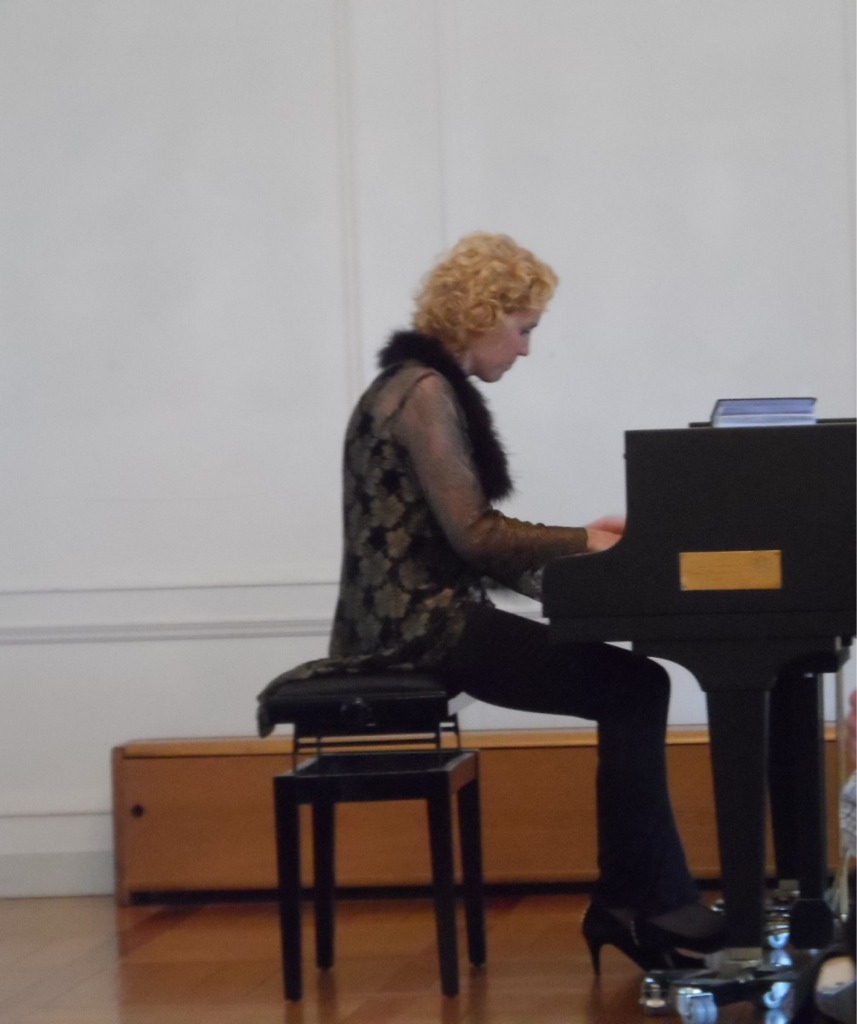
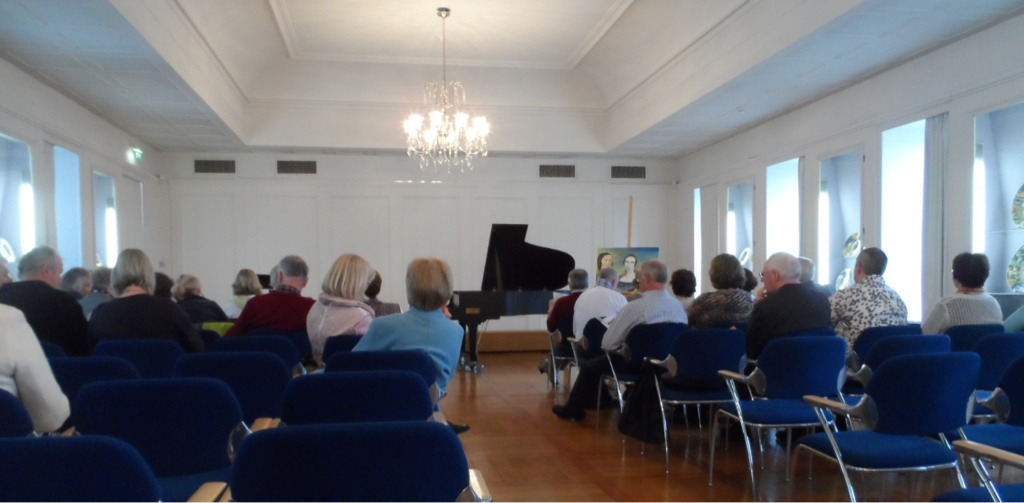
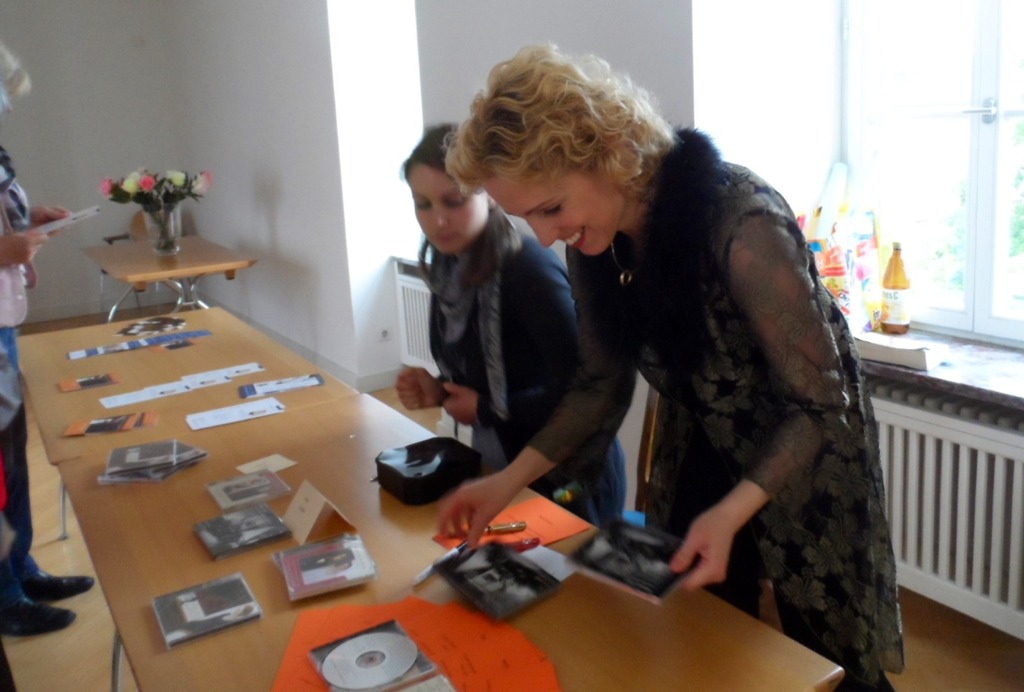
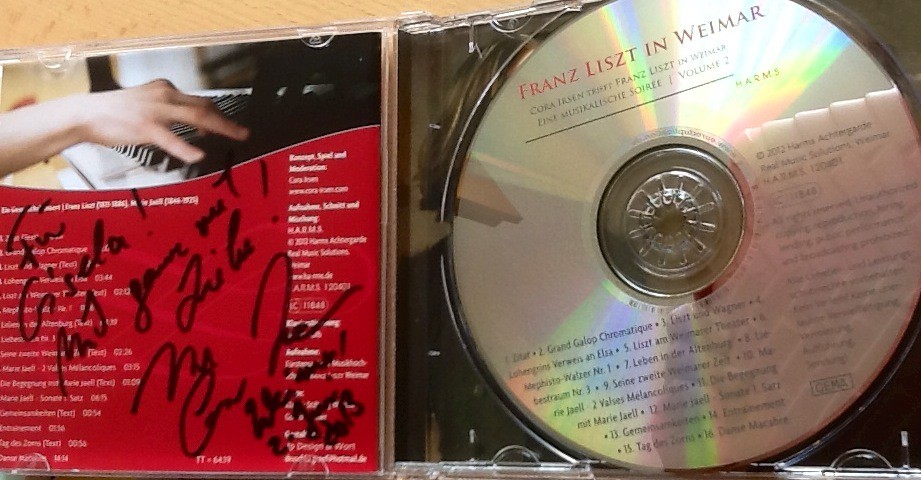
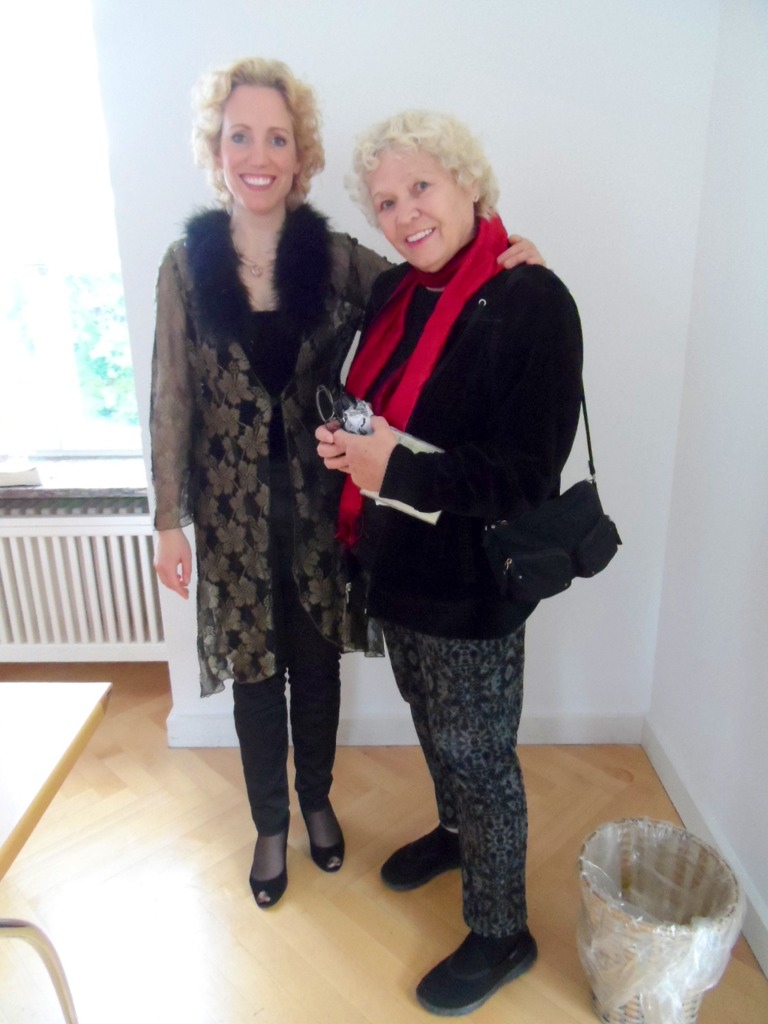
Location:Weimar
No comments:
Post a Comment